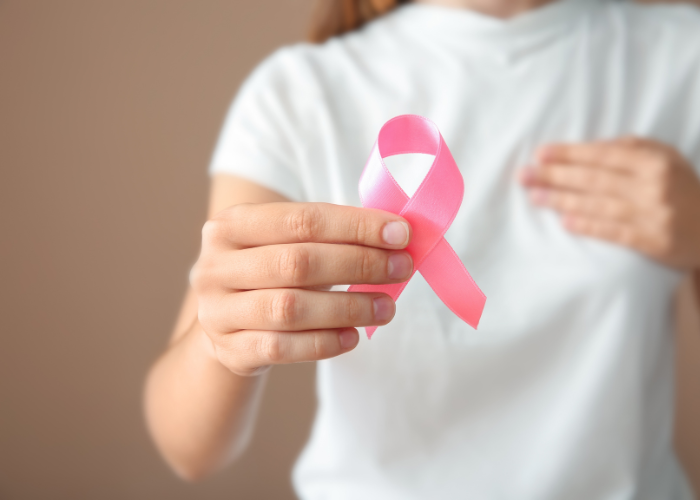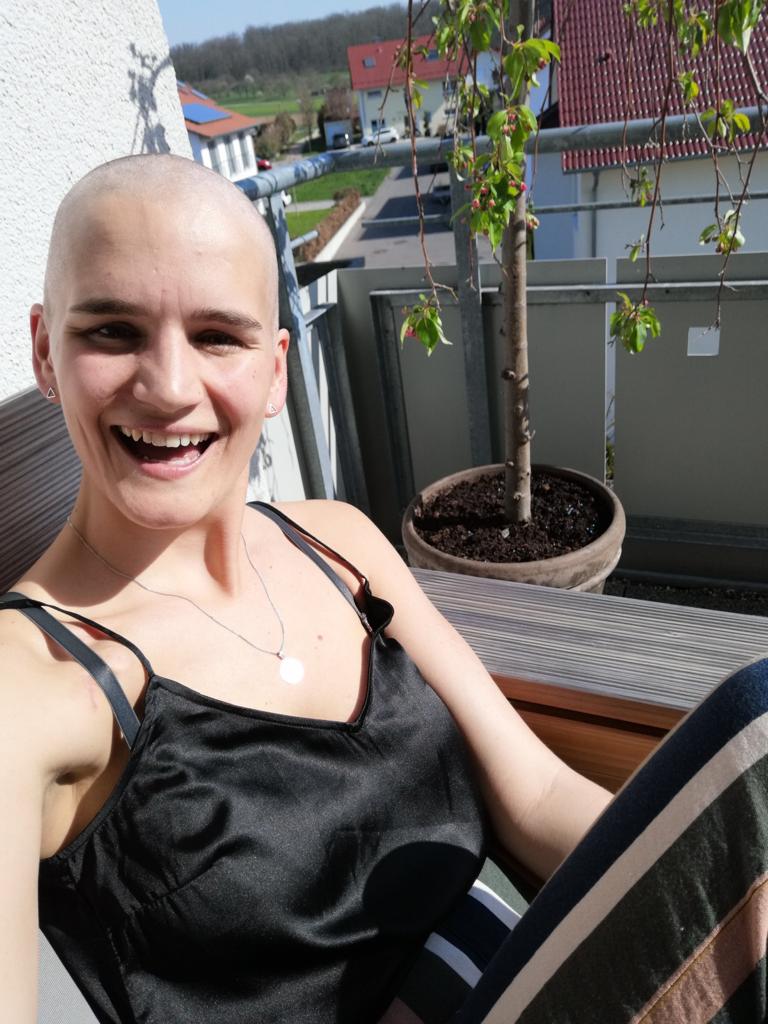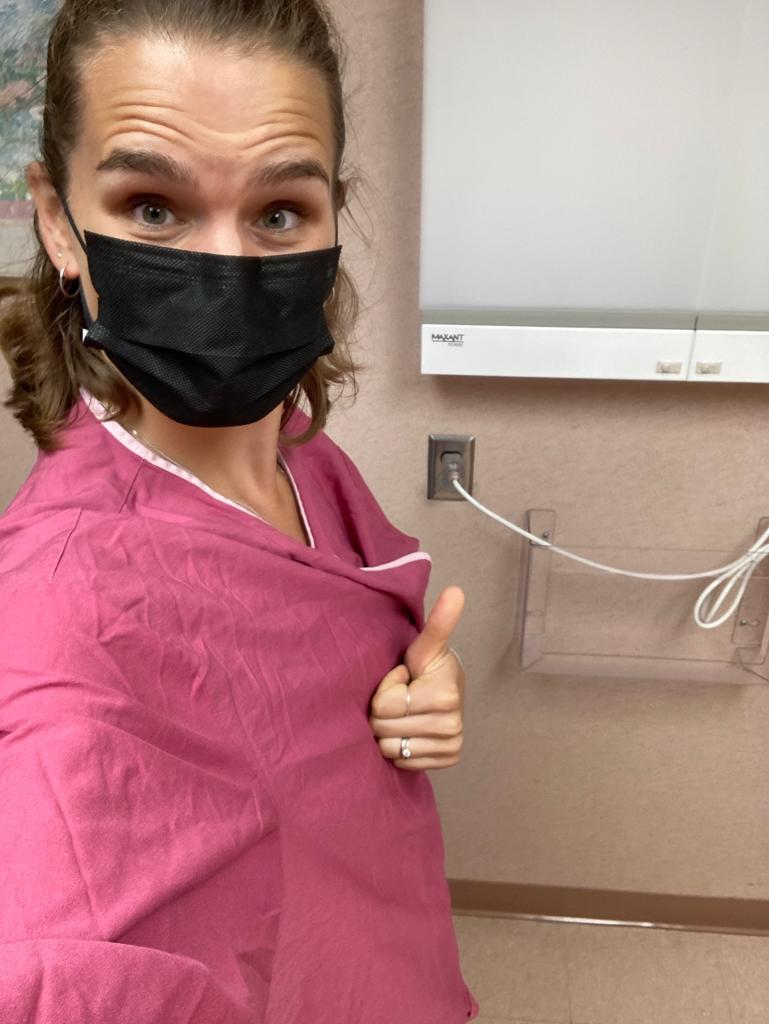Breast cancer - Prevention is better
than cure
Breast cancer is a prevalent disease that affects 1 in 8 women during their lifetime. This makes breast cancer one of the most common types of cancer in women worldwide.

I would like to share my own experience and information about breast cancer with you. It is a topic that is very close to my heart, as I am a breast cancer patient myself. I hope that my experiences and insights can help you better understand what it means to live and fight with this disease.
Breast cancer is a disease that can turn the lives of many women upside down. When I look back, I still vividly remember the moment I felt the lump in my breast for the first time. It was a terrifying moment.
The treatment of breast cancer can be very individual. Some women opt for surgery to remove the tumor, while others rely on a combination of radiation therapy and chemotherapy. In my case, a combination of surgery, chemotherapy, and radiation was necessary.
Breast Cancer - Overview

Breast cancer is a malignant tumor disease that begins in the cells of breast tissue. It is the most common type of cancer in women worldwide, but men can also be affected, although less frequently. There are various risk factors that can increase the risk of developing breast cancer, such as a family history of the disease, certain gene mutations, hormone replacement therapy, and obesity. Although these factors may increase the risk, breast cancer has still occurred in many women without known risk factors.
Early detection of breast cancer plays a crucial role in improving treatment outcomes and chances of recovery. Regular screenings like mammography, which takes X-ray images of the breast, can detect changes in breast tissue early on. Self-examinations of the breast can also help in noticing any changes or lumps. It is important to be aware of possible symptoms of breast cancer, such as a lump in the breast or armpit, changes in the size or shape of the breast, changes in the nipple, breast pain, or unusual discharge from the nipple.
Prevention
As a former breast cancer patient, I know from personal experience how important prevention is for this widespread disease. Each of us has the potential to have a significant impact on our own health through a healthy lifestyle and regular preventative screenings.
Breast cancer is one of the most common types of cancer in women worldwide, but prevention is the key to minimize the risk. By adopting a healthy lifestyle, we can positively influence our risk profile and increase the chances of early detection of breast cancer.
In addition to physical activity, a balanced diet plays a crucial role. I have changed my eating habits and now focus on healthy foods that provide my body with nutrients and strengthen my immune system.
Responsible alcohol use and abstaining from tobacco are also essential when it comes to breast cancer prevention. Personally, I have chosen to greatly reduce my alcohol consumption and ultimately abstain from it entirely to further minimize my risk.

Eat Healthy
A balanced, healthy diet can help reduce the risk of breast cancer. It is recommended to follow a diet that is rich in fruits, vegetables, whole grains, and lean proteins. In addition, alcohol consumption should be limited as excessive alcohol consumption can increase the risk of breast cancer.
Exercise
Regular physical activity can not only reduce the risk of breast cancer but also other types of cancer. The more exercise, the greater the effect. The German Cancer Aid recommends three times a week for 60 minutes each. These activities include fast walking, jogging, swimming, or cycling. Physical activity can help maintain a healthy body weight, which can also reduce the risk of breast cancer.
Genetic Risk
During genetic counseling for breast cancer risk, an examination of the BRCA1 and BRCA2 genes can be conducted to determine if a mutated form of these genes is present. In women with such a mutation, the risk of developing breast cancer over their lifetime is significantly increased.
Alcohol
According to the WHO, alcohol consumption is "one of the largest risk factors for breast cancer." Breast cancer is one of the most common types of cancer worldwide that is caused by alcohol. Each unit of alcohol consumed increases this risk.
Smoking
Smoking can increase the risk of breast cancer. It is well known that tobacco smoke contains a variety of harmful chemicals that can damage breast tissue, among other things.
Early detection
Early detection is equally important. A mammogram, an X-ray examination of the breast, is a good way to detect potential abnormalities early on. Regular self-examination of the breast can also be a valuable tool to notice any changes or abnormalities. You can do this in the shower or in front of the mirror, whichever suits you best.
It is understandable that the fear of breast cancer exists in all of us. But please don't forget that early detection and prompt treatment can significantly improve the chances of recovery. If you ever notice something unusual in your breasts, such as lumps, hardening, or discharge, don't hesitate to see your doctor. It is better to check one more time and have peace of mind than to risk overlooking something important.
Self-examination
Mammogram
Breast Ultrasound
Resources
Deutsche Krebshilfe
Die Deutsche Krebshilfe stellt Informationen und Beratungsdienste zur Verfügung und arbeitet eng mit Ärzten, Forschern und anderen Organisationen zusammen, um die Behandlungsmöglichkeiten und die Lebensqualität von Krebspatienten zu verbessern. Sie bietet umfangreiche Unterstützung für Menschen mit Krebs, darunter auch Frauen mit Brustkrebs
Lebensheldin E.V.
LebensHeldin e.V. ist ein gemeinnütziger Verein im deutschsprachigen Raum, der Frauen dabei unterstützt, nach Brustkrebs einen positiven Neuanfang zu machen. Der Verein hat das Ziel, Heilung und emotionales Wohlbefinden zu fördern und betont die Bedeutung der körperlichen und mentalen Erholung nach der Krankheit. Der Verein bietet verschiedene Aktivitäten und Ressourcen zur Unterstützung von Frauen mit Brustkrebs an, die einen positiven Blick auf das Leben nach der Krankheit fördern.

